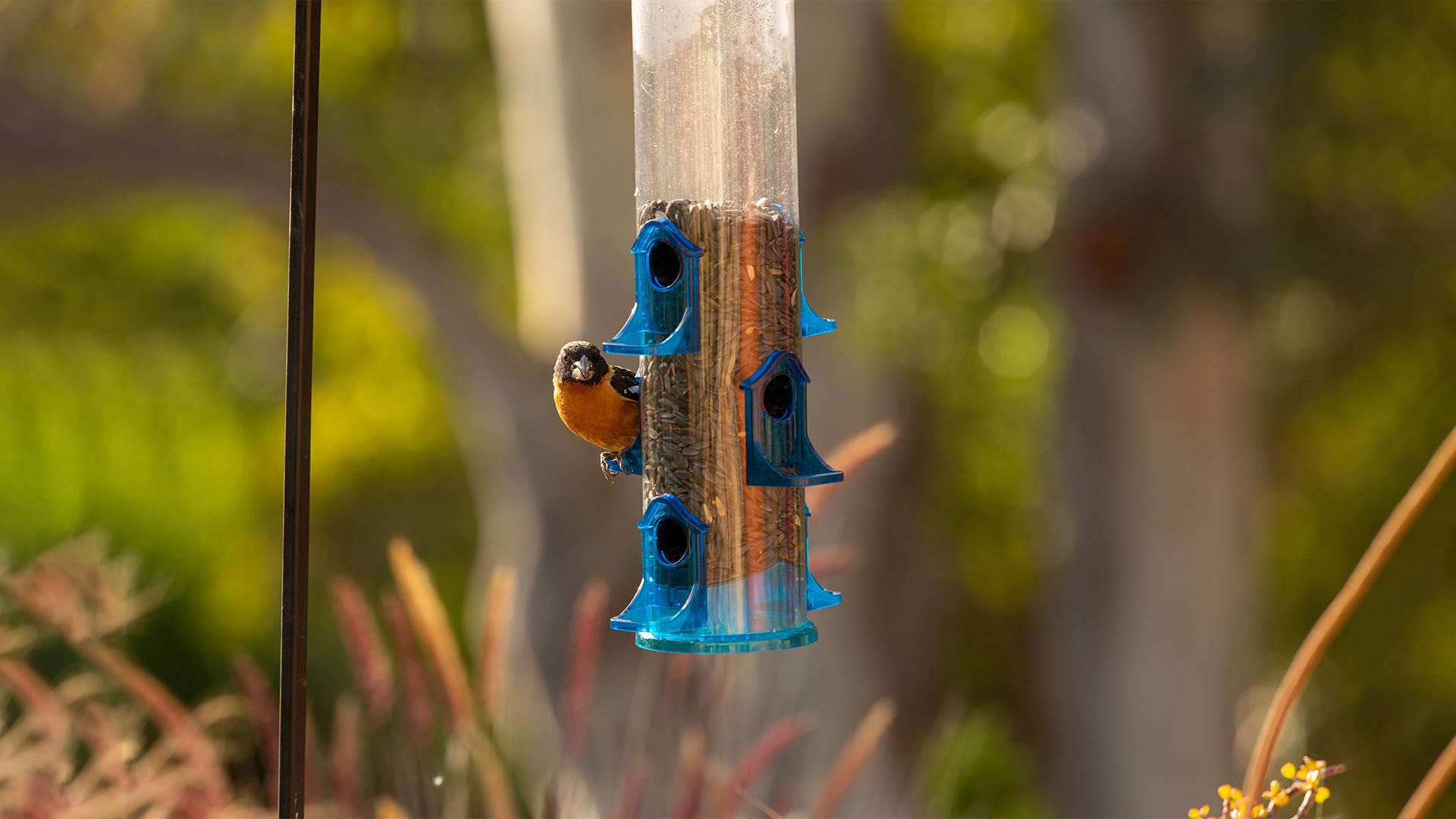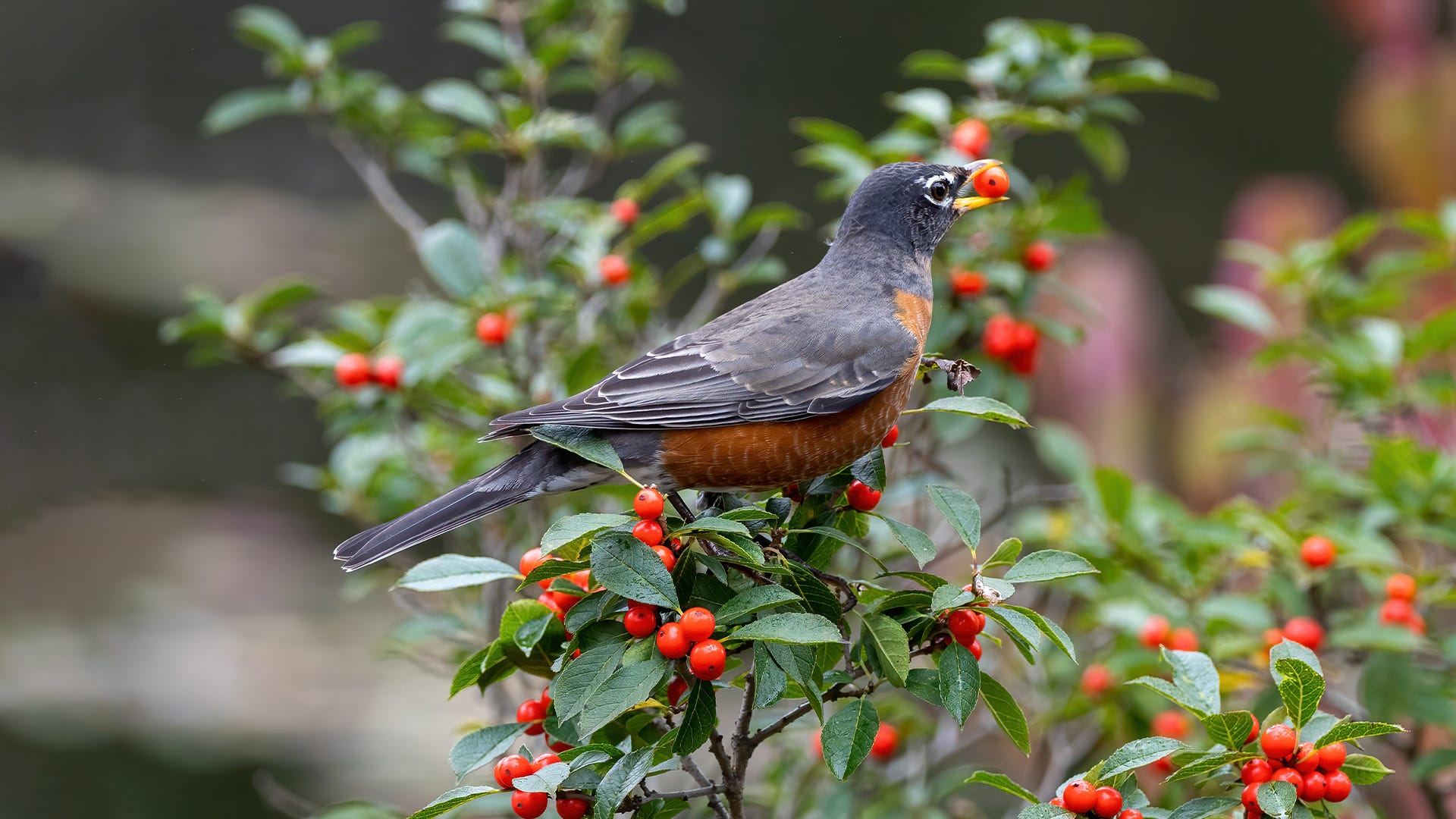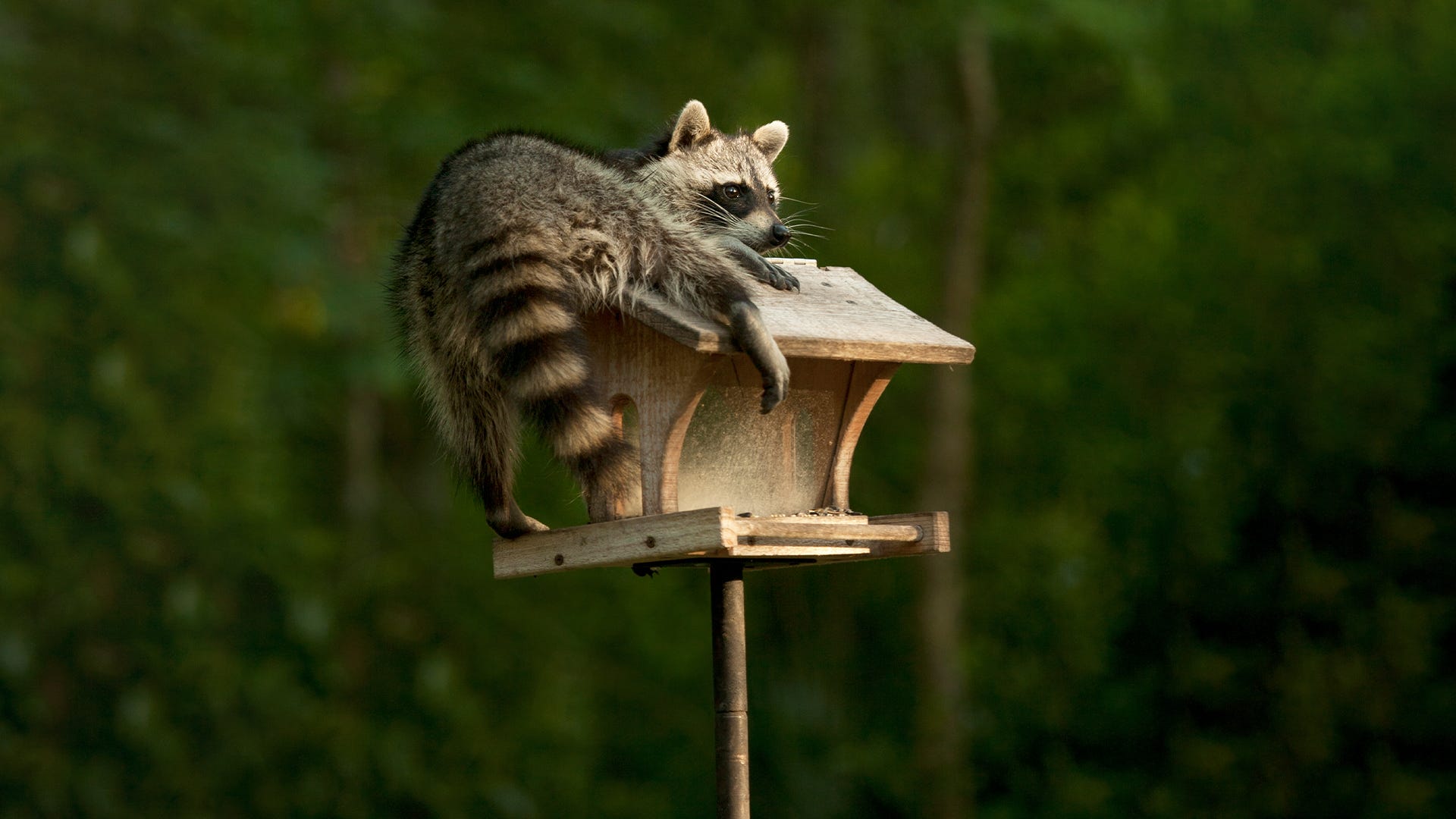
During the cold winter months, birds aren't the only ones in search of a meal. Squirrels might be your main problem when it comes to your backyard bird feeders. But, consider that nocturnal mammals, like the raccoon, are attracted to available food sources.
You may have already found a way to combat those bothersome squirrels. If these masked bandits are visiting your feeders too, you will need to develop a strategy to keep them out.
See also: How to Successfully Squirrel-Proof Your Bird FeedersRaccoons Will Eat Almost Anything—Including Your Bird Seed
Raccoons are omnivores—mammals that eat meat and vegetation. In short, they will eat anything they can get their hands on—insects, plants and fruits. Unfortunately, they will also eat the seeds from your bird feeders. We have all either witnessed or heard an account of a raccoon being spotted dumpster diving. What's to stop a raccoon from visiting your darkened yard and raiding bird feeders overflowing with sunflower seeds, nyjer, and peanuts?
While no method is foolproof, any of these ideas can help keep these pesky critters from dipping into your seeds.
1. Feed Birds One Day at a Time
Filling your feeders with just enough for the day's feeding might help stave off raccoons. With some regular observation, try to determine the busiest time of day for your bird feeders. Though most birds feed in the morning, you can often find stragglers coming to your feeders late in the day. Watching their routine for a few weeks. Try to determine how much your feathered visitors consume by nightfall, when most birds take shelter. Once your feeders are emptied out for the day, nocturnal raiders like the raccoon will find nothing to eat. They will eventually move on to new places to rummage. It may be time consuming to have to refill feeders daily, but it's a simple solution.
See also: How to Stop Bully Birds from Raiding Your Feeders2. Move Your Feeders
You gave much thought to the placement of your bird feeders. You probably placed at least one or two close to trees for easy access—a rule of thumb for bird safety. A bird startled by a predator during a meal can make an escape to the trees. However, if your feeders are being raided by these tree-climbing bandits, you will need to rethink your positioning. Move those feeders out from under trees, away from tall bushes, decks, and your house. These locations offer raccoons the opportunity to jump onto your feeders. You might want to mount these feeders on top of wooden poles or hang them from plant hangers in an open space, making it more difficult for raccoons to access them.
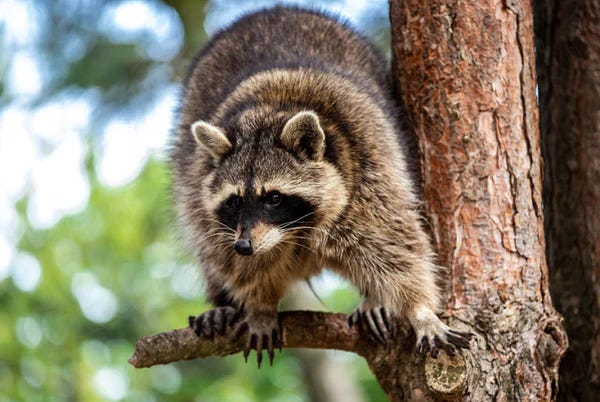
3. Put a Lid On It
If your trash cans are brimming with last night's dinner's remains, consider putting a lid on them. The aroma of any uneaten scraps of food will attract raccoons to your yard. In turn, it will give notice about your bird feeders. If you must put food scraps out at night, be sure they are fully enclosed in trash bins too heavy for raccoons to knock over. Most importantly, consider getting a lock for your lid. If raccoons aren't snooping through your day's trash, there's a better chance they won't find out about your bird feeders either.
4. Tamper with Your Bird Seed
Mammals such as raccoons are sensitive to spices, especially hot spices. You can purchase suet and seed already prepared with hot pepper. Or, you can make your own simply by adding hot pepper oil to your seeds. Bird are not affected by spices like raccoons are, so this could be one of the simplest deterrents. If you're concerned about harm the hot spice might cause these furry feeder raiders, rest assured they will only experience minor irritation. It won't cause any permanent damage, but they will think twice before raiding your feeders again.
5. Clear the Ground Mess
If you've had any experience with mice or rats in your backyard, you know that rodents sometimes become a problem around your feeders due to fallen seed. Fallen seed and sunflower seed hull attract more than birds to your backyard. Without these on the ground, you have a better chance of keeping raccoons out of your yard and feeders. Seed catching trays placed under your feeders are an option, but there's always a chance of some spillage.
Your best bet is to change to a bird seed that is a no mess mix. Since the shells are already removed from the seeds, birds visiting your feeders will not have to pick through the seed, a practice that results in seed dropping to the ground. Another benefit to using a no mess mix is that more seed is consumed. What little might hit the floor is usually eaten by ground feeders before nightfall.
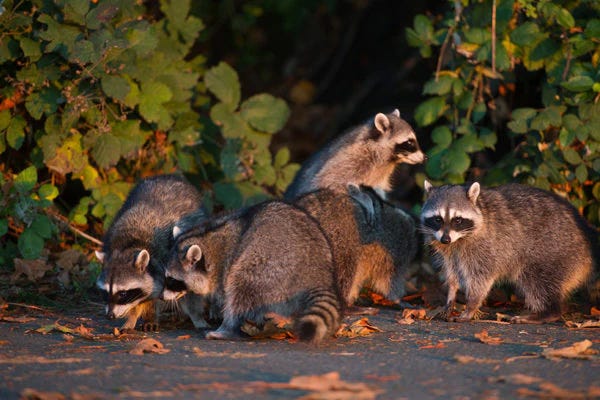
5. Baffle Those Critters
Like those irritating squirrels, a baffle can be another option in deterring raccoons from your bird feeders. Keep in mind that a raccoon is a larger and heavier animal than a squirrel, so you will need to choose the appropriate size baffle. If the baffle is too small, there's a good chance the raccoon will find a way around it.
Experts recommend two baffles best suited for deterring raccoons, the torpedo baffle and the stovepipe baffle. Both are long barrels that fit over the poles and wobble. It's recommended you get as long a baffle as you can find. When I called to check with my local wildlife group, they recommended a baffle 8 inches wide and 24 inches long. When you set up your baffle, make sure to distance the feeder from it as much as possible for best results. To do this, you might want to consider mounting the feeder on a taller pole than you have now.
See also: How to Keep Chipmunks Out of Bird Feeders6. Old Fashioned Water Works
If all else fails, there is always good old reliable water. Neighbors around my area have been using sprinklers to deter cats from using their flower beds as litter boxes for years. A sudden forceful spray of water during a meal is often enough to startle a diner into hightailing it for the garden gate. Once probably won't be enough. But after several nights of getting soaked during dinner, raccoons may come to realize that your feeders aren't worth the effort. Motion activated sprinklers offer both day and night detection modes. For deterring raccoons you'll want to get one with night detection mode alone.
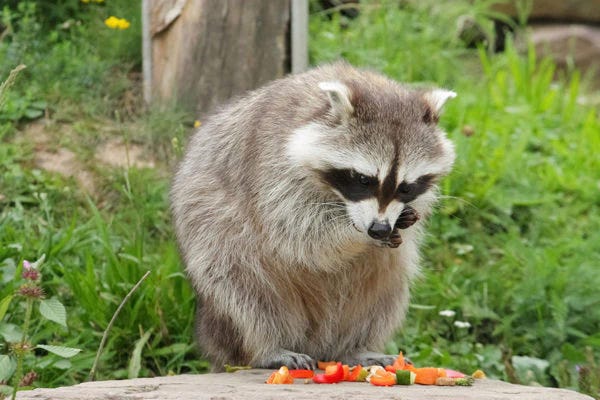
If You Can't Beat 'em, Feed 'em… If You Must
After years of battling squirrels without much success, I went with the adage of 'if you can't beat 'em, join 'em'. I gave up. I admit that when I go for my weekly seed shopping, I throw in a few big bags of peanuts. Yes, it costs more to enjoy my backyard birds. But I'm finding those squirrels are happy to grab those peanuts and run, leaving my feeders, for the most part, untouched.
While I'm okay with squirrels in my yard, I'm not okay with raccoons there. However, there are some people who love the idea of having some wildlife in their yard. These kindhearted folks feel for these hungry, masked bandits. If that's you, then by all means go ahead and feed the raccoons. But do it safely. Picky diners they are not, so feel free to leave a bowl of dry dog food or overripe fruit in a space far from the entryways to your home. Me, I'm going to run to the hardware store and pick up some baffles, a lock for my trash can, some hot pepper seed, and a brand-new sprinkler. One way or the other, I'm going to keep those raccoons out of my feeders.






